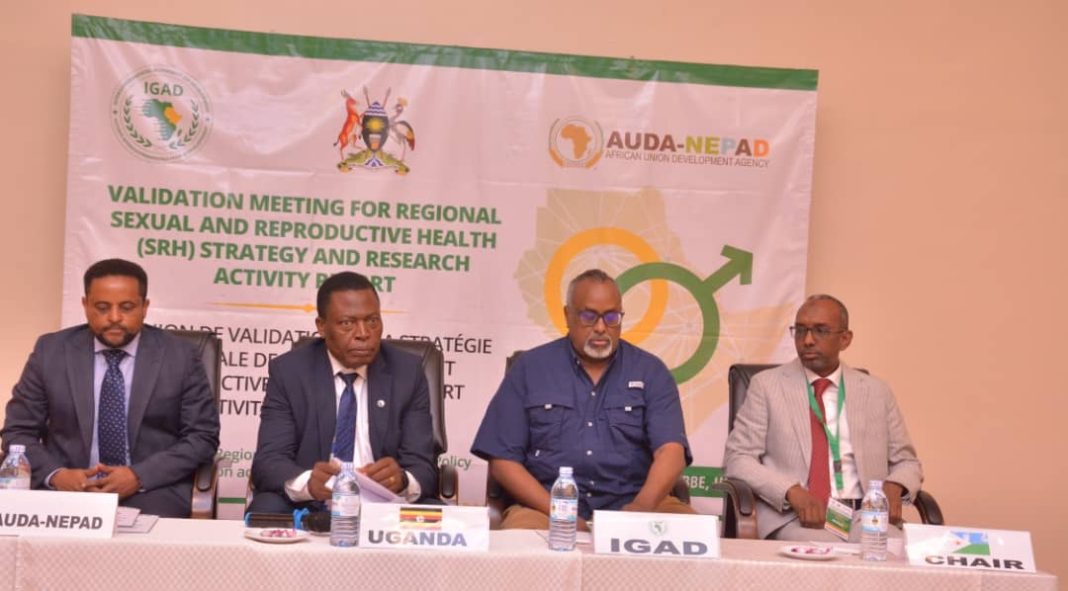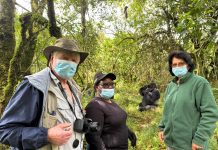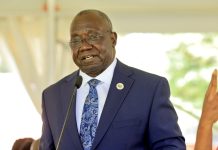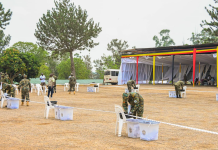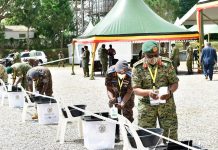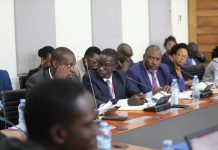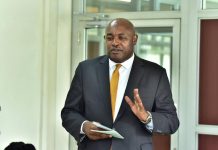By Catherine Nambi
Member states of the intergovernmental Authority on Development (IGAD) have been challenged to increase funding for sexual and Reproductive health services to address challenges of high maternal mortality and HIV burden among the vulnerable populations especially the youths and women.
The call comes as majority of IGAD member states grapple with significant issues stemming from inadequate sexual and reproductive health (SRH) programs particularly in rural areas including rising rates of unintended pregnancies, sexually transmitted infections, and maternal health crises among others
Regional reproductive health experts from IGAD member states Djibouti, Ethiopia, Kenya, Eritrea, Somalia, South Sudan, Sudan and Uganda are meeting in Entebbe for a three day validation workshop on the Sexual and Reproductive Health (SRH) Strategic Plan, convened by IGAD secreatariat under the Africa Demographic Dividend and Sexual and Reproductive Health (A2DSRH) Programme
Joselyn Bigirwa the IGAD Head of Mission to Uganda told the meeting that Investment in sexual and reproductive health is not merely a health issue but a matter of human rights, economic development, and social justice.”
Bigirwa told experts, “Most time when you talk about sexual and reproductive health it’s about the youth and in Uganda the youth comprise a biggest percentage of the population. But we also know that in Uganda we have a big population of the females and these are most challenged as young girls, mothers and adult women in their post reproductive age. They all face reproduction challenges so when we deliver a program that addresses issues of reproductive health we are doing serious business.”
Dr. Olaro Charles, the Director General of Health Services at Uganda’s Ministry of Health highlights that sexual health challenges including high teenage pregnancies, high Abortion rates majority unsafe abortions and high HIV/AIDS infection rates among others are stretching the already burdened health systemof IGAD member states calling on experts at the three day meeting to come up with practical interventions to address the challenges.
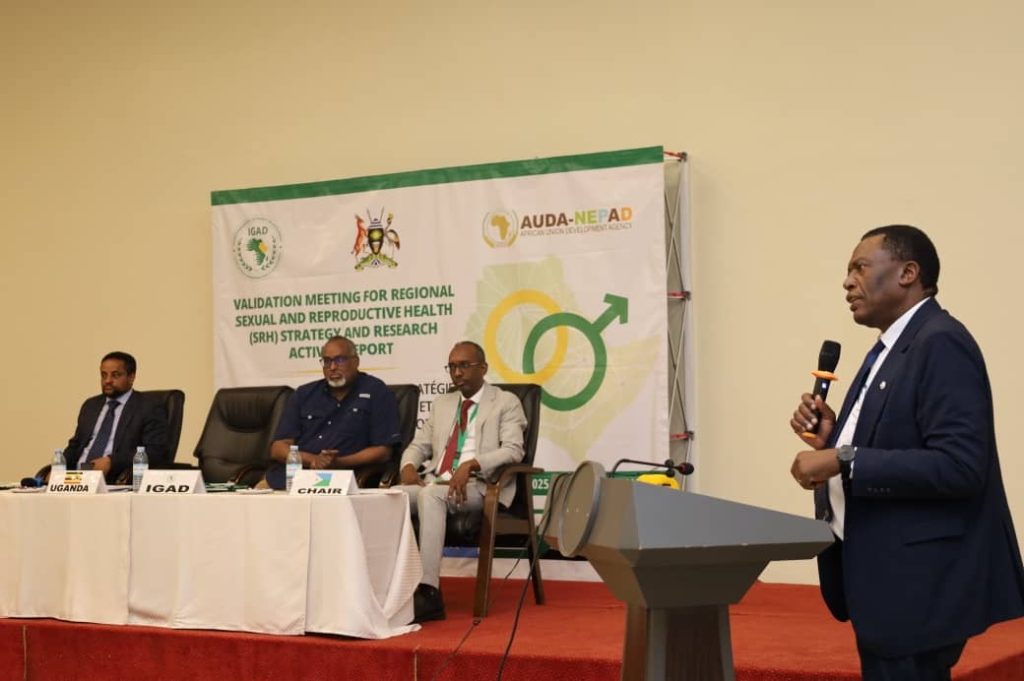
He says addressing sexual and Reproductive Health challenges can meaningfully contribute towards economic development of the IGAD region
“The economists will agree that the net returns on investment on sexual and reproductive health cannot be over emphasized. First the person is empowered because all of us know that by keeping the girl child in school they are able to delay when they will get their first baby and even if they get their baby they will look after them well and will also do family spacing. So we need to commit as states to support African Demographic Dividends for sexual and reproductive health program.” Explains Dr Olaro
Citing his country Djibout Abdullahi Ibrahim says in the quest for change, IGAD member states must engage communities to raise awareness and acceptance of SRH programs citing the example of his country.
Abdullahi explains, “In our country Djibout there is lack of comprehensive sexuality education. Social and religious beliefs often limit open conversation around sexuality. There are taboos surrounding Juvenile sexuality and contraception. This make it hard for young girls to get accurate information and the use of family planning still remains low.”
Dr. Hagos Debeb from the African Union Development Agency (AUDA-NEPAD) has called for an actionable framework to addresses the region’s most pressing SRH challenges noting that a robust SRH Strategic Plan is an essential pillar for regional integration, human capital development, and sustainable growth.
“Sexual and reproductive health lies at the heart of inclusive development. A well-articulated SRH strategy equips us to reduce maternal and newborn mortality, expand access to youth-friendly services, promote gender equality, and address unmet needs in family planning. It empowers communities and builds resilient health systems capable of withstanding shocks, whether health-related, social, or economic.” says Dr. Hagos Debeb
According to Dr Mohamed Abdi Ware the Deputy IGAD Executive Secretary, through enhanced budgets the population especially women and youths in the IGAD members states will be empowered to make informed Sexual and Reproductive health decisions.
Dr Mohamed Abdi elaborates, “Much of what we discussed does not happen in isolation of the bigger agenda of women empowerment which starts with education, economic empowerment and making women more in control of their lives, destinies and futures. So if we empower women in that regard much of what we are trying to do they will do it.”
Dr Ahmed Hassan the Coordinator of the African Democratic Dividend on Sexual and Reproductive Health (A2DSRH) is optimistic the IGAD member states can jointly tackle the Sexual and reproductive health challenges and is looking forward to a regional health organization through continued consultations
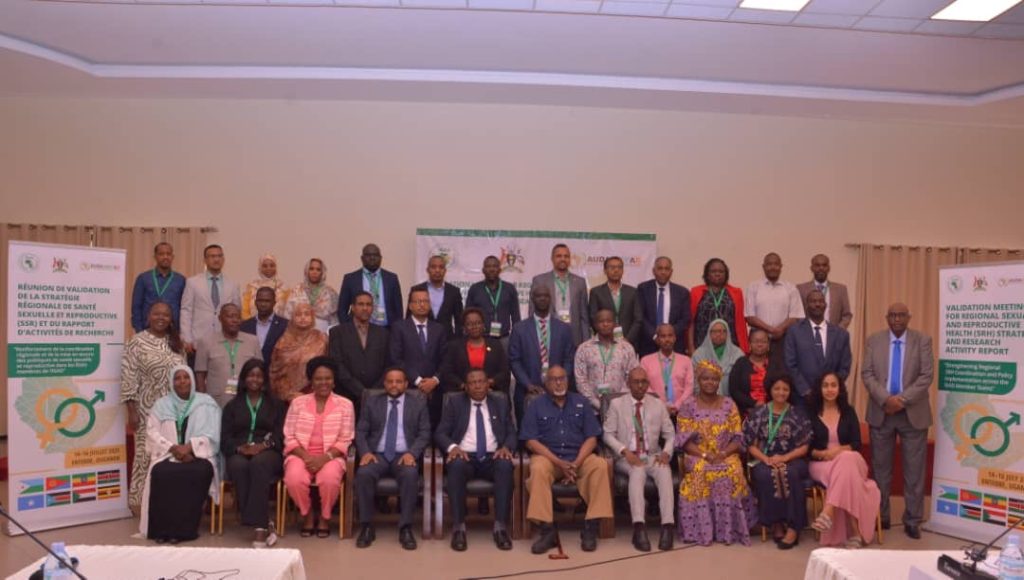
The three day Validation workshop on the Sexual and Reproductive Health (SRH) Strategic Plan that ends on 16th July seeks to among others strengthen regional sexual and Reproductive health coordination and policy implementation across the IGAD member states.


